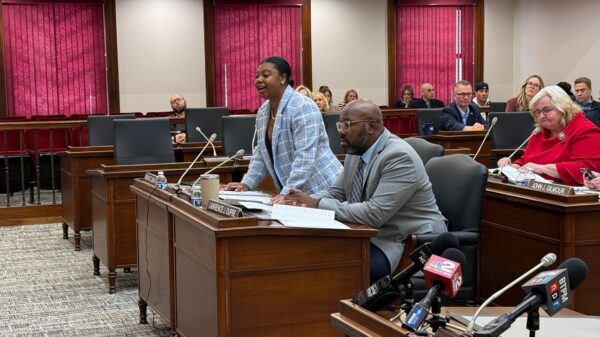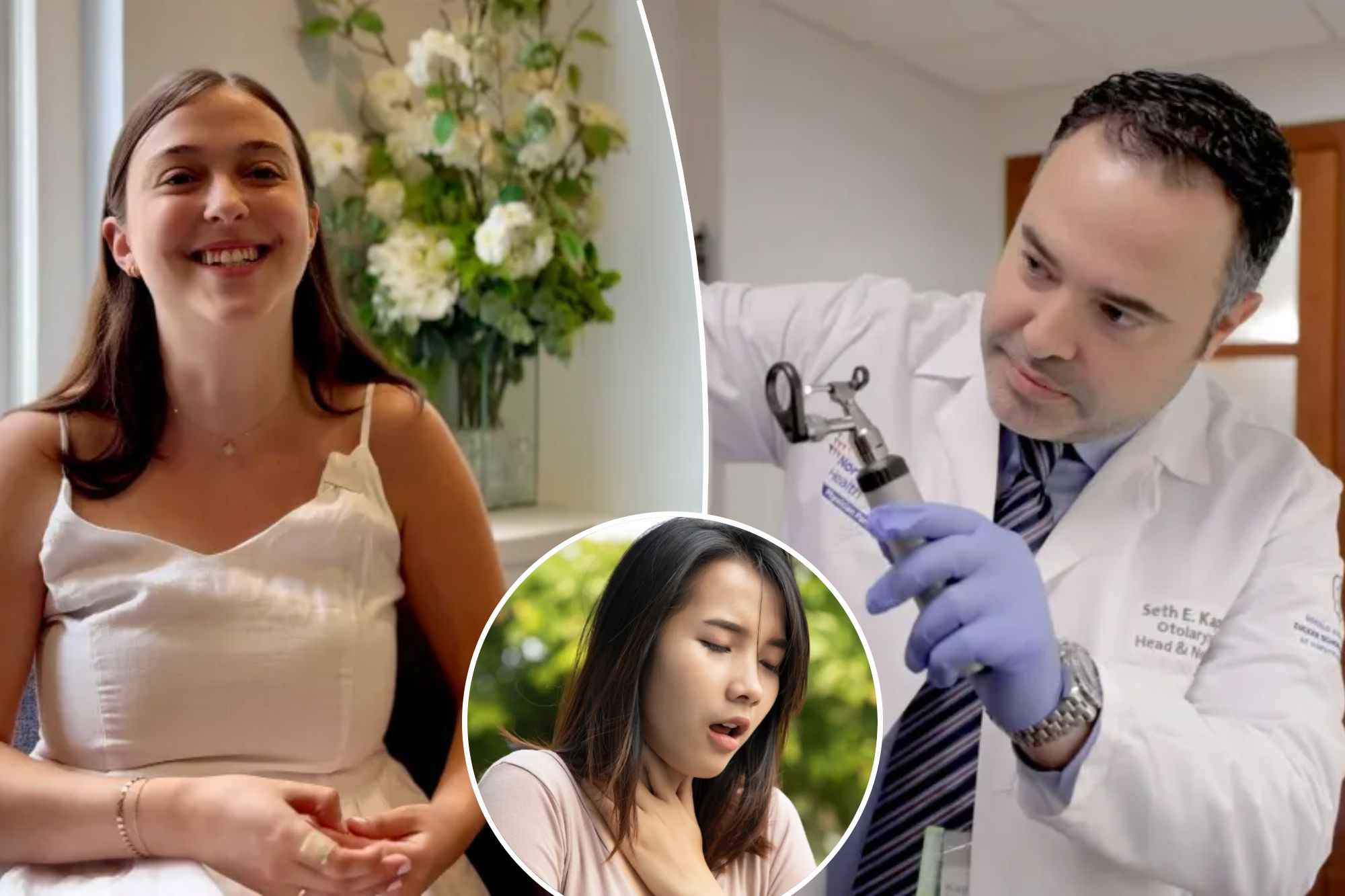A 23-year-old woman from Manhattan, Isabelle Zeidner, discovered she had a rare condition known as retrograde cricopharyngeus dysfunction (R-CPD), commonly referred to as “no burp syndrome.” This diagnosis came after years of experiencing unusual symptoms, including gurgling sounds and bloating, particularly when kissing or consuming certain foods. Despite normal tests, Zeidner found relief through a Botox injection in April 2023.
Zeidner first became aware of her symptoms around the age of 9 or 10. She described her experience with frequent head colds that resulted in excessive saliva and unusual gurgling noises resembling a toad’s croak. “I just remember that was, like, really weird,” she recalled. The symptoms persisted throughout her school years and intensified over time.
Initially dismissed as acid reflux by those close to her, Zeidner’s condition was more complex. R-CPD occurs when the cricopharyngeus muscle, located at the top of the esophagus, fails to relax properly, preventing air from escaping. This dysfunction can lead to discomfort, heartburn, and even vomiting if symptoms worsen.
After undergoing an endoscopy and gastric emptying study during her college years—both of which returned normal results—Zeidner was referred to Dr. Seth Kaplan, a board-certified otolaryngologist and director of Northwell Health’s Center for Voice and Swallowing Disorders. Kaplan performed a thorough examination and asked specific questions to confirm the diagnosis. “I answered those questions, and he’s like, ‘Yep, you definitely have this,’” Zeidner recounted.
In a treatment breakthrough, Zeidner received a Botox injection that targeted her cricopharyngeus muscle, allowing trapped air to escape. “The cricopharyngeus muscle acts as a valve, relaxing to allow food to pass and air to escape during belching,” Kaplan explained. “In normal swallowing, it relaxes briefly then contracts to prevent reflux.”
The increasing awareness of R-CPD has led to more diagnoses, according to Kaplan. Zeidner’s TikTok post about her experience garnered significant attention, with nearly 19.9 million views and many comments expressing a sense of recognition and relief among viewers.
The exact causes of R-CPD remain uncertain. While no one in Zeidner’s family has this condition, her parents noted she was particularly colicky as a baby. Kaplan stated there is currently no definitive evidence linking genetic or developmental factors to R-CPD. Potential contributing factors may include neurological issues or gastroesophageal reflux disease (GERD), but these remain theoretical.
Common symptoms of R-CPD include an inability to burp, gurgling noises in the throat, abdominal bloating, and chest pressure. If untreated, the condition can lead to chronic discomfort or more severe complications, including esophageal distension or perforation. Treatments vary, but Kaplan has achieved a success rate of around 90% with Botox injections, and close to 100% after a second injection if necessary.
The Botox treatment typically takes two to three days to show results. While side effects may include a mild sore throat and temporary excessive burping, patients can often resume drinking carbonated beverages within five to seven days post-treatment.
Zeidner noted a remarkable improvement in her condition following the injection. “Now, if I drink a seltzer or a soda, it’s definitely made me feel a lot better, a lot less indigestion, bloating. It’s just definitely a lifesaver,” she said.
As awareness of R-CPD grows, individuals experiencing similar symptoms may find hope in effective treatment options. Zeidner’s story highlights the importance of seeking specialized medical advice and the potential for relief through innovative procedures.





































































